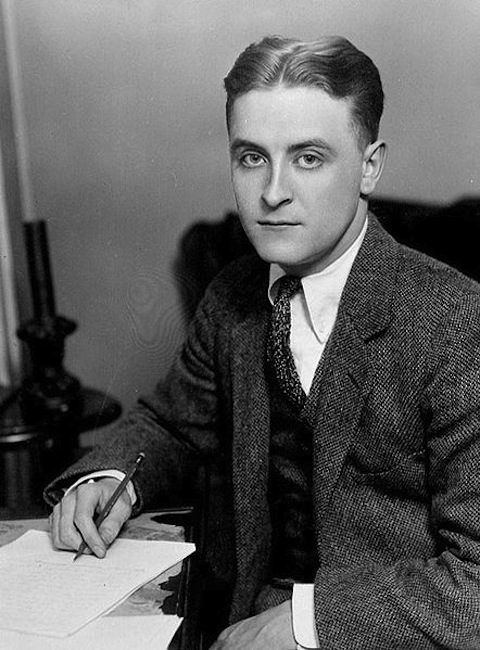F_Scott_Fitzgerald_1921

Born 117 years ago today in St. Paul, Minnesota, F. Scott Fitzgerald, that somewhat louche denizen—some might say inventor—of the “Jazz Age,” has been immortalized as the tender young man we see above: Princeton dropout, writer of The Great Gatsby, boozy companion to beautiful Southern belle flapper Zelda Sayre. Amidst all the glamorization of his best and worst qualities, it’s easy to forget that Fitzgerald was also the father of a daughter, Frances Scott Fitzgerald, who went on to have her own successful career as a writer. Unlike the children of some of Fitzgerald’s contemporaries, Frances thrived, which must be some testament to her father’s parenting (and to Zelda’s as well, though she allegedly hoped, like Daisy Buchanan, that her daughter would become a “beautiful little fool”).
We get more than a hint of Fitzgerald’s fatherly character in a wonderful little letter that he sent to her in August of 1933, when Frances was away at summer camp. Fitzgerald, renowned for his extremes, counsels an almost Epicurean middle way—distilling, perhaps, hard lessons learned during his decline in the thirties (which he wrote of candidly in “The Crack Up”). He concludes with a list of things for his daughter to worry and not worry about. It’s a very touching missive that I look forward to sharing with my daughter some day. I’ll have my own advice and silly in-jokes for her, but Fitzgerald provides a very wise literary supplement. Below is the full letter, published in the New York Times in 1958. The typos, we might assume, are all sic, given Fitzgerald’s penchant for such errors:
AUGUST 8, 1933
LA PAIX RODGERS’ FORGE
TOWSON, MATYLAND
DEAR PIE:
I feel very strongly about you doing duty. Would you give me a little more documentation about your reading in French? I am glad you are happy– but I never believe much in happiness. I never believe in misery either. Those are things you see on the stage or the screen or the printed page, they never really happen to you in life.
All I believe in in life is the rewards for virtue (according to your talents) and the punishments for not fulfilling your duties, which are doubly costly. If there is such a volume in the camp library, will you ask Mrs. Tyson to let you look up a sonnet of Shakespeare’s in which the line occurs Lilies that fester smell far worse than weeds…
I think of you, and always pleasantly, but I am going to take the White Cat out and beat his bottom hard, six times for every time you are impertinent. Do you react to that?…
Half-wit, I will conclude. Things to worry about:
Worry about courage
Worry about cleanliness
Worry about efficiency
Worry about horsemanship…
Things not to worry about:
Don’t worry about popular opinion
Don’t worry about dolls
Don’t worry about the past
Don’t worry about the future
Don’t worry about growing up
Don’t worry about anybody getting ahead of you
Don’t worry about triumph
Don’t worry about failure unless it comes through your own fault
Don’t worry about mosquitoes
Don’t worry about flies
Don’t worry about insects in general
Don’t worry about parents
Don’t worry about boys
Don’t worry about disappointments
Don’t worry about pleasures
Don’t worry about satisfactions
Things to think about:
What am I really aiming at?
How good am I really in comparison to my contemporaries in regard to:
(a) Scholarship
(b) Do I really understand about people and am I able to get along with them?
(c) Am I trying to make my body a useful intrument or am I neglecting it?
With dearest love,







No comments:
Post a Comment